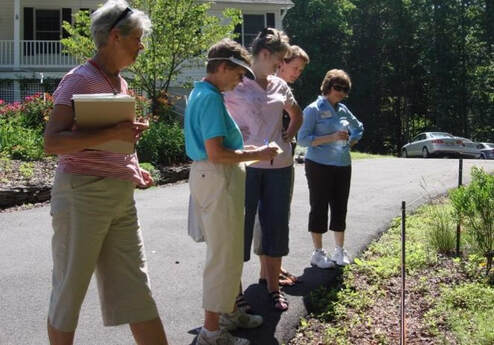What is Bay-Wise? |
A smarter way of gardening and lawn care for a cleaner, healthier Chesapeake Bay
and watershed – including your own backyard.
and watershed – including your own backyard.

Do you want to save money, reduce garden maintenance, AND protect the Chesapeake Bay? Master Gardeners trained by the University of Maryland are available to help you evaluate your gardening practices to do just that.
Learn about being a more responsible landowner by adopting non-polluting methods of lawn care, pest and disease control, composting and stormwater control—approaches that support wildlife and protect our local waterways.
Master Gardeners will visit your yard to show you how good garden practices can help protect our environment and save you money.
If you're interested in a free yard visit, and you live in Anne Arundel County, please send a request to [email protected] or go to "Contact Us" on this site.
Learn about being a more responsible landowner by adopting non-polluting methods of lawn care, pest and disease control, composting and stormwater control—approaches that support wildlife and protect our local waterways.
Master Gardeners will visit your yard to show you how good garden practices can help protect our environment and save you money.
If you're interested in a free yard visit, and you live in Anne Arundel County, please send a request to [email protected] or go to "Contact Us" on this site.
